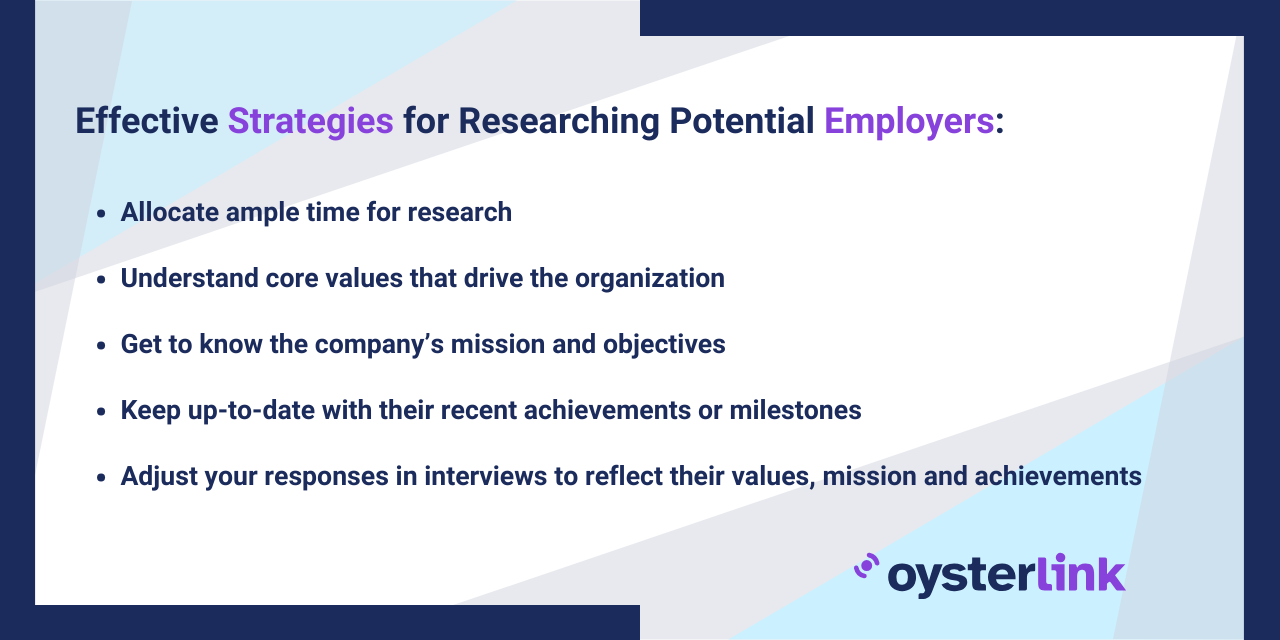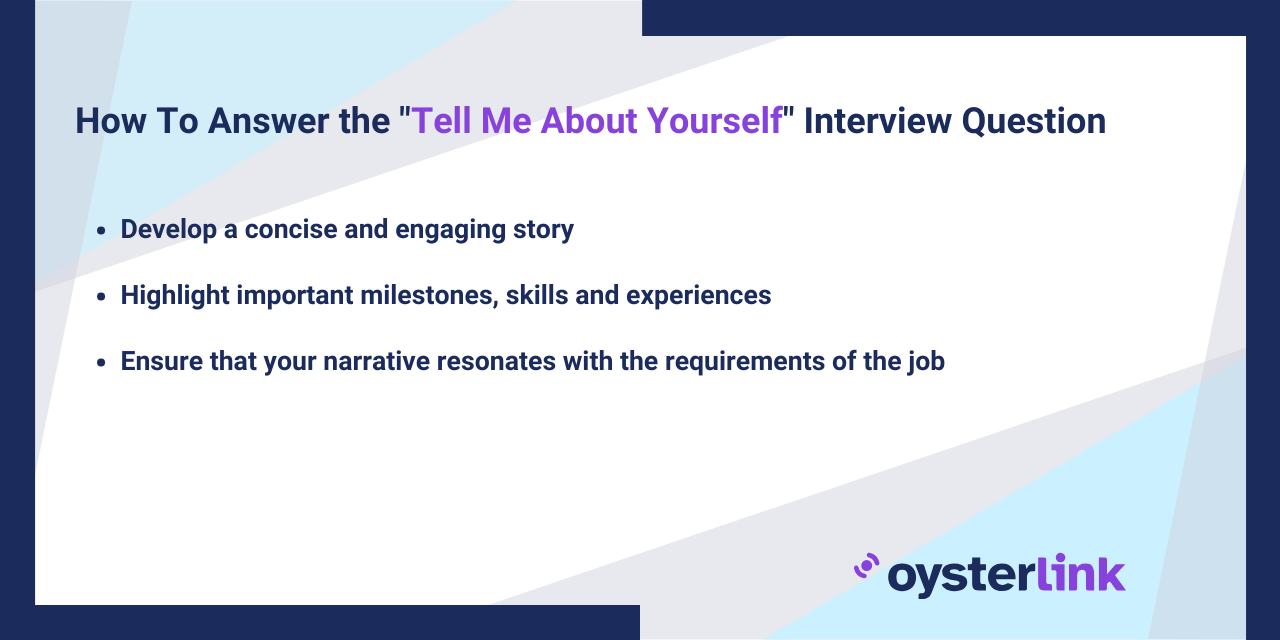The most recent data from the U.S. Bureau of Labor Statistics shows that individuals applying for 21 to 80 jobs have roughly a 30% probability of receiving a job offer.
Despite reaching the interview stage and putting in significant time and effort, some job applicants still find themselves unable to secure the desired job.
Why does this happen?
In this article, we’ll look into the nine common reasons why you might be getting interviews but no offers. More importantly, we’ll give practical tips to help you overcome these challenges and improve your chances of turning interviews into job offers.
Why You Get Job Interviews but No Offers
Getting interviews but no offers is not uncommon, and several factors may play a role in this. These include:
- Lack of relevant experience
- Poor communication skills
- Unrealistic salary expectations
- Inconsistent job history
- Differences in education levels
The infographic below underscores that a strong educational background, while important, may not guarantee success in the competitive job market.
[Source: Time]
This chart is interactive. Hover your mouse over different parts of the chart to see detailed data.
This survey from Time.com revealed that:
- 51% of job seekers with bachelor’s degrees concluded the process without securing a job offer
- 35% of job seekers with at most a high school diploma also concluded the process without securing a job offer
Those holding a bachelor’s degree were also more likely to be requested to complete a job skills assessment and perform a multi-round interview.
Now that we learned that job seekers with higher education level secure less job offers than those with lower education level, let’s examine the real reasons why you may be getting interviews but struggling to secure job offers.
1. You Don’t Dedicate Enough Time to Researching the Employer
Investing time in comprehensive research on a potential employer is not just a good practice; it’s also a strategic move that can set you apart. Demonstrating a genuine interest in the company is a key factor that recruiters weigh heavily.
Your research should extend beyond the basics of the company’s name and industry. Learn about the core values that drive the organization, understand its mission and familiarize yourself with their recent achievements or milestones.

Tailoring your responses during interviews to reflect this knowledge is the next crucial step. When you can seamlessly integrate the company’s values, mission and recent achievements into your answers, you demonstrate your commitment and subtly convey that you are the ideal candidate who understands the organization on a deeper level.
2. You Don’t Seem Excited About the Role
Employers are not only interested in your skills; they want someone genuinely excited about the responsibilities and challenges the job brings. Failing to show enthusiasm about the role during the interview can significantly impact your chances of receiving a job offer.
View the interview as an opportunity to showcase not only your skills but also your passion for the role. Start by dissecting the responsibilities and challenges outlined in the job description. What aspects resonate with your career goals and aspirations? How does this role align with your skills and expertise, and why does it stand out from other opportunities?
3. Your Storytelling Might Be Lacking
Your ability to tell a compelling story, particularly when responding to the classic “Tell me about yourself” question, is crucial. If your storytelling falls short, it can leave the hiring manager uncertain about who you are, what you want and whether you are a good fit.
Consider this question as a chance to grab the interviewer’s attention from the get-go. Develop a narrative that strikes a balance between being concise and engaging. Think of it as a sneak peek into your professional journey, emphasizing key milestones, skills and experiences that align with the position.

Rehearse your narrative until it becomes second nature, ensuring a confident and compelling delivery during interviews. Practice enables you to fine-tune your storytelling, iron out any awkward pauses and maintain a natural flow that resonates positively with interviewers.
4. You Sound Scripted and Over-Rehearsed
When we say “over-rehearsed,” we mean that your responses come across as scripted and lacking authenticity. While practice is essential for a successful interview, there’s a fine line between being prepared and sounding like you’re reading from a memorized script.
When you’re too rehearsed, your answers may lose spontaneity, making it harder for the interviewer to connect with you on a personal level. It can create a sense that you’re reciting information rather than engaging in a genuine conversation.
Also pay attention to your tone of voice and body language. If you’re too rigid or monotone, it can contribute to the impression that you’re following a rehearsed script. Practice maintaining a relaxed yet professional demeanor to convey confidence and authenticity.
5. Your Online Presence Doesn’t Align With Your Professional Image
Recruiters often turn to social media to gain additional insights into a candidate’s personality and professional background. Inconsistencies between your interview persona and your online presence might raise red flags.
When presenting yourself in an interview, your goal is to convey a specific image — one that aligns with the job requirements and company culture. However, make sure the image you create in interviews matches how you present yourself on social networks, especially on platforms like LinkedIn, Facebook and Instagram.
This coherence reinforces your credibility, signaling to employers that the person they meet in an interview is the same professional they see online — a vital aspect in building lasting professional relationships.
Also, keep in mind that certain online behaviors can be particularly off-putting for recruiters. These include:
- Hateful or political comments
- Sharing inappropriate content, whether it’s related to your personal life or professional sphere
- Excessive self-promotion
It’s advisable to review your privacy settings and, if necessary, either put personal profiles on private or ensure there’s nothing potentially incriminating or unprofessional visible to the public eye.
6. You Unintentionally Give Off a Desperate Vibe
Coming off as desperate can create a negative impression during interviews. Avoid saying things like
- “I’ll do anything to get this job, I really need it.”
- “I’m sorry if I seem nervous, I just want this job so badly.”
- “I’ve been job hunting for so long, and it’s been really tough. This opportunity means everything to me.”
While expressing enthusiasm for the role is undoubtedly valued, being overenthusiastic to the point of desperation can undermine your chances.
Instead of solely focusing on the urgency of securing the position, highlight specific examples from your past experiences. Showcase your skills in action, reinforcing your potential contributions to the prospective role.
7. You Don’t Consider Specific Concerns Interviewers Might Have
It’s crucial to consider any concerns interviewers may have about your suitability for a role, even if they don’t explicitly mention them. While you can’t read their minds, taking a proactive approach without being too assertive is key. Consider asking questions such as:
- “Is there a specific aspect of my background or experience that you’d like me to elaborate on further?”
- “Is there anything specific from my resume or interview responses that you would like me to clarify or expand upon?”
These questions not only showcase your proactive mindset but also allow you to directly address any reservations the interviewer may have. They open the door for a constructive conversation where you can provide additional context, share relevant examples and demonstrate your capability to overcome potential challenges.
Timing-wise, it’s best to pose these questions towards the end of the interview when the interviewer invites you to ask any questions.
8. Your Behavior May Be Perceived as Unprofessional
During job interviews, being highly professional is not just recommended; it’s essential and can significantly impact your chances of landing that job.
Certain behaviors can cast a shadow on your suitability for a role. These include:
- Arriving late
- Wearing inappropriate attire
- Neglecting basic etiquette, such as maintaining eye contact, active listening and courteous communication
By consistently embodying professionalism, you not only create a positive impression but also convey a sense of reliability and respect.
9. It’s Not Your Fault
External factors beyond your control could also contribute to interview outcomes. In certain situations, the reason behind not getting a job offer might not necessarily be attributed to your actions.
Economic conditions, organizational restructuring or sudden shifts in hiring priorities are external elements that can significantly impact a company’s decision making. Acknowledging these possibilities allows you to approach the job-seeking process with a realistic outlook and adaptability.
Explore More Career Advice
Now that we have covered the various reasons why job interviews may not result in offers and strategies for success, it’s time to consider the tangible steps that can propel your job search forward.
Explore more career advice, stay updated on industry trends and check out our interview guides for various roles.
Stay tuned for additional guidance as you navigate your job search journey with confidence and purpose.









